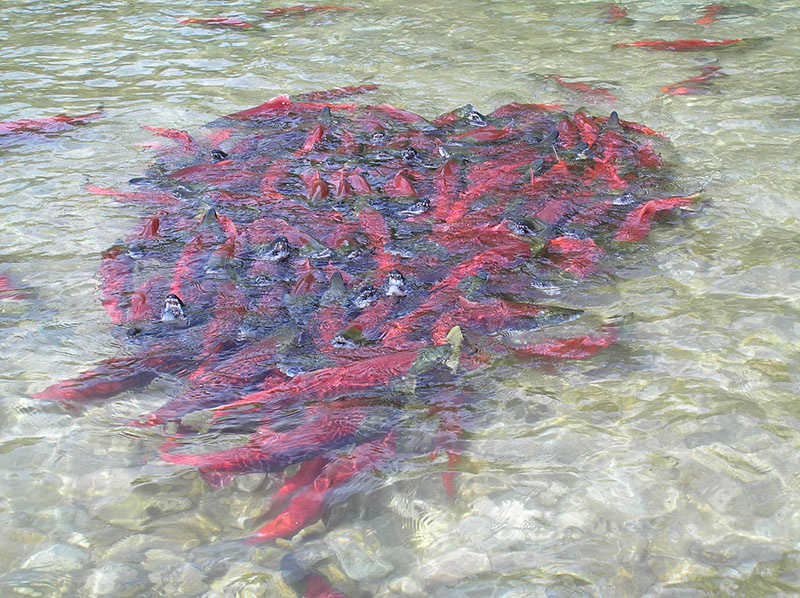With a new administration at the helm in Washington, the possibility of perching a metals mine over the headwaters of Bristol Bay is back on the table.
In a January op-ed for the Alaska Dispatch, Pebble CEO Tom Collier heralded the work the corporation has done to address the concerns of Alaska residents, the thousands of fishermen who make their living in the shadow of the potential mine and its caustic byproducts, and the millions of consumers who rely on Bristol Bay’s pristine rivers to welcome back the world’s largest wild salmon run year after year.
Collier claims his corporation has “developed ways to substantially reduce the initial development footprint,” “advanced plans to provide a financial interest in the mine to residents of the region” and “meaningfully enhance[d] environmental safeguards” (which only leaves me asking, “How exactly?” We can only take the corporation’s word for it until they file a plan, but we’ve been waiting more than a decade for that so far).
Footprint, safeguards and cash flow are all critical components to the mine’s producers, as they relate to their bottom line in the extraction of this resource. But the bottom line for the Bristol Bay salmon fleet and other local residents who rely on those salmon returns is not just what happens now but what happens 50 years from now when the mine is no longer operating, Pebble Corp. no longer exists, and there’s a problem with maintenance of one of the toxic byproduct ponds?
The biggest disconnect between these two sides is not that Pebble hasn’t done enough to make the project appeal to the local community. Jobs and infrastructure are a fine lure. The problem is simply perspective. Are you in Alaska for a fling or to start a long-term relationship?
An extractor who mines a finite resource looks at their job differently than someone who extracts a potentially infinite resource. Finite resources are found in many places in small amounts. This makes the harvesters somewhat nomadic. They don’t need to put down roots where they work. In the same way, a one-off greenhorn fisherman is just there to survive the season and take home a check. The short-termer just needs to connect enough to get in and claim their share, knowing they will be gone when the season is over. What incentive do they have to build relationships and a good reputation with the rest of the crew if they know they never need to work with them again?
The captain, on the other hand, has a bigger responsibility to manage the boat as a whole, the crew, the resource — they all contribute to the bottom line of his or her business and require constant consideration of the future and potential pitfalls. When your resource is bountiful and potentially infinite, relying almost entirely on the health of the environment in which it breeds, you have every incentive to ensure that environmental threats are managed with a view to the far-flung future.
This is why critics of Pebble ask simply (and repeatedly), “What is the advantage of risking the infinite salmon resource for the short-term gain of the metals resource?”
There will always be another greenhorn walking the docks. This is not the only pebble on the beach. Is it worth the risk of trading forever for now?







